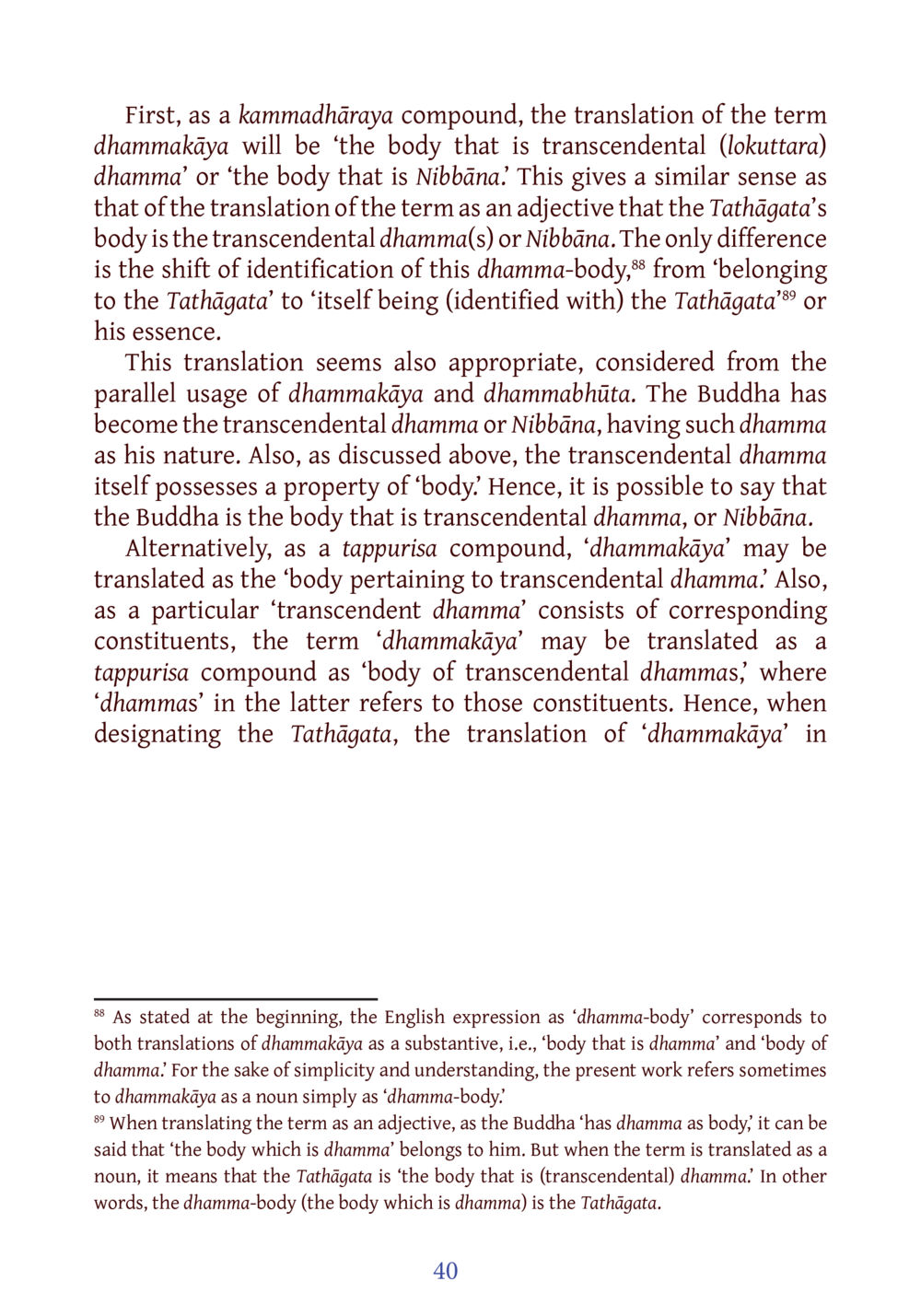Exploring the Concept of Dhammakaya : หน้า 61/141
DIRI Journal : หน้า 61/141 An analysis of the term Dhammakaya in Buddhist philosophy, exploring its meanings and implications in relation to Nibbāna and Tathāgata.
0 ครั้ง

สรุปเนื้อหา
The term Dhammakaya can be viewed in two ways: as a kammadhāra compound translated to mean 'the body that is transcendental dhamma' or as a tappurisa compound meaning 'body pertaining to transcendental dhamma.' This analysis explains the significance of Dhammakaya in identifying the nature of the Tathāgata, illustrating that the Buddha embodies transcendental dhamma or Nibbāna. The discussion highlights the Buddha's essence and the relationship between the Buddha and Nibbāna, shedding light on the depth of these terms in Buddhist teachings. This exploration concludes that understanding Dhammakaya is crucial in comprehending the nature of the Buddha as the embodiment of ultimate truth.
หัวข้อประเด็น
-Dhammakaya
-The concept of Nibbāna
-Transcendental dhamma
-Understanding Tathāgata
-Philosophical implications of Dhammakaya
ข้อความต้นฉบับในหน้า
หน้าหนังสือทั้งหมด













































































































































